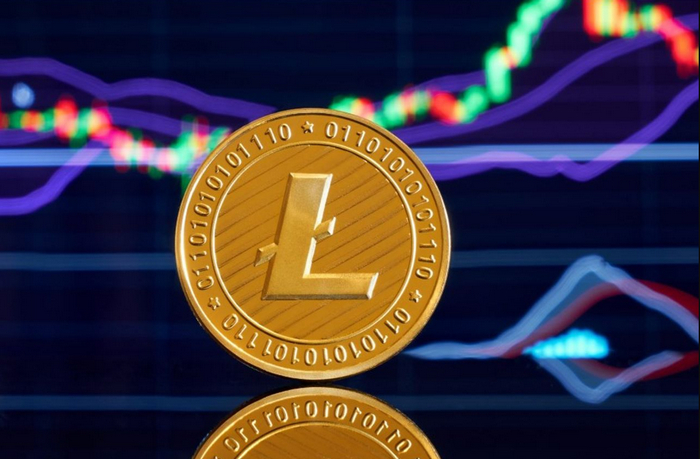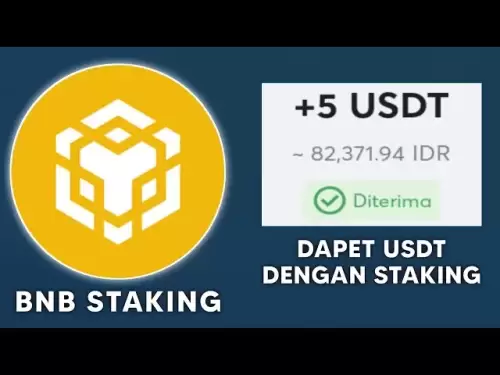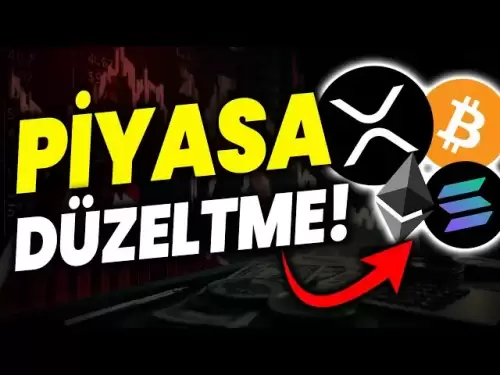-
 Bitcoin
Bitcoin $105,978.7605
5.45% -
 Ethereum
Ethereum $2,423.8735
9.54% -
 Tether USDt
Tether USDt $1.0005
0.02% -
 XRP
XRP $2.1626
9.40% -
 BNB
BNB $641.9746
4.79% -
 Solana
Solana $146.4071
11.93% -
 USDC
USDC $0.9999
0.00% -
 TRON
TRON $0.2735
4.33% -
 Dogecoin
Dogecoin $0.1646
10.74% -
 Cardano
Cardano $0.5839
9.61% -
 Hyperliquid
Hyperliquid $38.4234
8.79% -
 Sui
Sui $2.8430
18.30% -
 Bitcoin Cash
Bitcoin Cash $469.1401
3.03% -
 Chainlink
Chainlink $12.9029
12.83% -
 UNUS SED LEO
UNUS SED LEO $9.1005
0.89% -
 Avalanche
Avalanche $18.1358
11.70% -
 Stellar
Stellar $0.2453
8.78% -
 Toncoin
Toncoin $2.9174
7.94% -
 Shiba Inu
Shiba Inu $0.0...01160
11.29% -
 Litecoin
Litecoin $85.3114
7.70% -
 Hedera
Hedera $0.1512
15.21% -
 Monero
Monero $309.9386
4.88% -
 Ethena USDe
Ethena USDe $1.0007
0.03% -
 Polkadot
Polkadot $3.4098
9.78% -
 Dai
Dai $1.0002
0.02% -
 Bitget Token
Bitget Token $4.1523
4.23% -
 Uniswap
Uniswap $6.8863
11.50% -
 Pepe
Pepe $0.0...09973
13.94% -
 Pi
Pi $0.5363
7.15% -
 Aave
Aave $255.4680
15.65%
How to trade Litecoin to others? Litecoin selling transaction graphic tutorial
Users must first establish an account with a cryptocurrency exchange that offers Litecoin trading to engage in Litecoin trading.
Oct 13, 2024 at 06:24 am

How to Trade Litecoin to Others
1. Open a cryptocurrency exchange account
A cryptocurrency exchange is a platform that allows you to buy, sell, and trade cryptocurrencies. To trade Litecoin, you will need to open an account with a cryptocurrency exchange that supports Litecoin trading.
2. Fund your account
Once you have opened an account, you will need to fund it with the currency you want to use to buy Litecoin. You can do this by depositing funds from your bank account or by using a credit card.
3. Find a Litecoin trading pair
Once you have funded your account, you will need to find a Litecoin trading pair. A trading pair is a pair of cryptocurrencies that are being traded against each other. Litecoin trading pairs commonly include LTC/BTC, LTC/ETH, and LTC/USDT.
4. Place a buy order
Once you have found a Litecoin trading pair, you can place a buy order. A buy order is an order to buy Litecoin at a specified price.
5. Wait for your order to be filled
When you place a buy order, it will be added to the order book. The order book is a list of all the buy and sell orders for a particular trading pair. If your order is filled, you will receive Litecoin in your account.
6. Sell your Litecoin
Once you have purchased Litecoin, you can sell it to other users on the cryptocurrency exchange. To sell your Litecoin, you can place a sell order. A sell order is an order to sell Litecoin at a specified price.
7. Withdraw your profits
Once your sell order has been filled, you can withdraw your profits from the cryptocurrency exchange. You can do this by withdrawing the funds to your bank account or by using a credit card.
Here are some additional tips for trading Litecoin:
- Do your research. Before you start trading Litecoin, it is important to do your research and learn about the risks involved.
- Start small. When you first start trading Litecoin, it is important to start small with your investments. This will help you to minimize your risk of losing money.
- Use a trading strategy. There are a number of different trading strategies that you can use to trade Litecoin. Find a strategy that works for you and stick to it.
- Don't trade more than you can afford to lose. Trading Litecoin can be risky. Only trade with money that you can afford to lose.
Disclaimer:info@kdj.com
The information provided is not trading advice. kdj.com does not assume any responsibility for any investments made based on the information provided in this article. Cryptocurrencies are highly volatile and it is highly recommended that you invest with caution after thorough research!
If you believe that the content used on this website infringes your copyright, please contact us immediately (info@kdj.com) and we will delete it promptly.
- Circle's Stablecoin Soars: A $62 Billion Power Play
- 2025-06-24 06:25:12
- COIN Act: Curbing Crypto Profiteering by Public Officials – A Necessary Step?
- 2025-06-24 06:25:12
- Bitcoin Scaling Showdown: Lightning Network, Sztorc, and the Future of Payments
- 2025-06-24 04:25:12
- Cathie Wood, ARK Invest, and Circle Shares: A Wild Ride on the Stablecoin Wave
- 2025-06-24 04:25:12
- Ruvi AI: Blockchain Tech Meets Real-World Utility – The Next Big Thing?
- 2025-06-24 05:25:13
- US, Iran, Middle East: Navigating the Geopolitical Minefield
- 2025-06-24 05:05:12
Related knowledge

How to customize USDT TRC20 mining fees? Flexible adjustment tutorial
Jun 13,2025 at 01:42am
Understanding USDT TRC20 Mining FeesMining fees on the TRON (TRC20) network are essential for processing transactions. Unlike Bitcoin or Ethereum, where miners directly validate transactions, TRON uses a delegated proof-of-stake (DPoS) mechanism. However, users still need to pay bandwidth and energy fees, which are collectively referred to as 'mining fe...

USDT TRC20 transaction is stuck? Solution summary
Jun 14,2025 at 11:15pm
Understanding USDT TRC20 TransactionsWhen users mention that a USDT TRC20 transaction is stuck, they typically refer to a situation where the transfer of Tether (USDT) on the TRON blockchain has not been confirmed for an extended period. This issue may arise due to various reasons such as network congestion, insufficient transaction fees, or wallet-rela...

How to cancel USDT TRC20 unconfirmed transactions? Operation guide
Jun 13,2025 at 11:01pm
Understanding USDT TRC20 Unconfirmed TransactionsWhen dealing with USDT TRC20 transactions, it’s crucial to understand what an unconfirmed transaction means. An unconfirmed transaction is one that has been broadcasted to the blockchain network but hasn’t yet been included in a block. This typically occurs due to low transaction fees or network congestio...

How to check USDT TRC20 balance? Introduction to multiple query methods
Jun 21,2025 at 02:42am
Understanding USDT TRC20 and Its ImportanceUSDT (Tether) is one of the most widely used stablecoins in the cryptocurrency market. It exists on multiple blockchain networks, including TRC20, which operates on the Tron (TRX) network. Checking your USDT TRC20 balance accurately is crucial for users who hold or transact with this asset. Whether you're sendi...

What to do if USDT TRC20 transfers are congested? Speed up trading skills
Jun 13,2025 at 09:56am
Understanding USDT TRC20 Transfer CongestionWhen transferring USDT TRC20, users may occasionally experience delays or congestion. This typically occurs due to network overload on the TRON blockchain, which hosts the TRC20 version of Tether. Unlike the ERC20 variant (which runs on Ethereum), TRC20 transactions are generally faster and cheaper, but during...

The relationship between USDT TRC20 and TRON chain: technical background analysis
Jun 12,2025 at 01:28pm
What is USDT TRC20?USDT TRC20 refers to the Tether (USDT) token issued on the TRON blockchain using the TRC-20 standard. Unlike the more commonly known ERC-20 version of USDT (which runs on Ethereum), the TRC-20 variant leverages the TRON network's infrastructure for faster and cheaper transactions. The emergence of this version came as part of Tether’s...

How to customize USDT TRC20 mining fees? Flexible adjustment tutorial
Jun 13,2025 at 01:42am
Understanding USDT TRC20 Mining FeesMining fees on the TRON (TRC20) network are essential for processing transactions. Unlike Bitcoin or Ethereum, where miners directly validate transactions, TRON uses a delegated proof-of-stake (DPoS) mechanism. However, users still need to pay bandwidth and energy fees, which are collectively referred to as 'mining fe...

USDT TRC20 transaction is stuck? Solution summary
Jun 14,2025 at 11:15pm
Understanding USDT TRC20 TransactionsWhen users mention that a USDT TRC20 transaction is stuck, they typically refer to a situation where the transfer of Tether (USDT) on the TRON blockchain has not been confirmed for an extended period. This issue may arise due to various reasons such as network congestion, insufficient transaction fees, or wallet-rela...

How to cancel USDT TRC20 unconfirmed transactions? Operation guide
Jun 13,2025 at 11:01pm
Understanding USDT TRC20 Unconfirmed TransactionsWhen dealing with USDT TRC20 transactions, it’s crucial to understand what an unconfirmed transaction means. An unconfirmed transaction is one that has been broadcasted to the blockchain network but hasn’t yet been included in a block. This typically occurs due to low transaction fees or network congestio...

How to check USDT TRC20 balance? Introduction to multiple query methods
Jun 21,2025 at 02:42am
Understanding USDT TRC20 and Its ImportanceUSDT (Tether) is one of the most widely used stablecoins in the cryptocurrency market. It exists on multiple blockchain networks, including TRC20, which operates on the Tron (TRX) network. Checking your USDT TRC20 balance accurately is crucial for users who hold or transact with this asset. Whether you're sendi...

What to do if USDT TRC20 transfers are congested? Speed up trading skills
Jun 13,2025 at 09:56am
Understanding USDT TRC20 Transfer CongestionWhen transferring USDT TRC20, users may occasionally experience delays or congestion. This typically occurs due to network overload on the TRON blockchain, which hosts the TRC20 version of Tether. Unlike the ERC20 variant (which runs on Ethereum), TRC20 transactions are generally faster and cheaper, but during...

The relationship between USDT TRC20 and TRON chain: technical background analysis
Jun 12,2025 at 01:28pm
What is USDT TRC20?USDT TRC20 refers to the Tether (USDT) token issued on the TRON blockchain using the TRC-20 standard. Unlike the more commonly known ERC-20 version of USDT (which runs on Ethereum), the TRC-20 variant leverages the TRON network's infrastructure for faster and cheaper transactions. The emergence of this version came as part of Tether’s...
See all articles
























































































